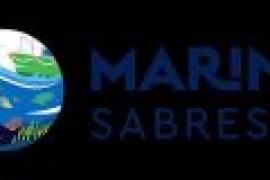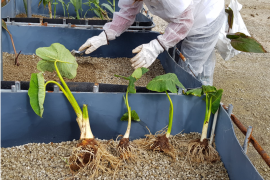MARINE SABRES - Marine Systems Approaches for Biodiversity Resilience and Ecosystem Sustainability
The Marine SABRES project is a Horizon Europe Programme funded by the EU from September 2022 for the coming four years, starting in September 2022. Among the 22 research institutes, from 11 European countries, the University of the Azores is one of the partners, with the participation of some researchers from the CIBIO research centre.
Marine SABRES aims to enable stakeholders, such as practitioners, managers, scientists, policy and the public at large, to make well-informed decisions regarding the balance between the conservation and protection of marine biodiversity, the maintenance of the natural structure and processes of marine ecosystems; and the support of sustainable delivery of societal goods and benefits in coastal and marine sectors. To this end, Marine SABRES will bring stakeholders together to co-design a simple Social-Ecological System framework to accelerate the uptake of Ecosystem-Based Management and to strengthen interventions and measures for protecting and conserving coastal and marine areas, their biodiversity and ecosystem services. The study areas range from the Arctic North-East Atlantic to study the effects of climate change and the management of commercial fisheries, Macaronesian islands (Azores, Madeira, Canaries) with a focus on the development of conservation, restoration and ecotourism) and the Italian Tuscan Archipelago will be studied for the effects of tourism and the effectiveness of the conservation of seagrass beds.
2022-2026
Reference
Grant Agreement No. 101058956.
https://www.marinesabres.eu/
Funded by:
Research Groups
MARBE - Marine Biodiversity and Environment
Principal Investigator
Emma Verling - MaREI Centre for Energy, Climate and Marine
Research Team from CIBIO_UAç
Ana Costa (local PI)
Andrea Z. Botelho
Manuela Parente
Maria A. Ventura




